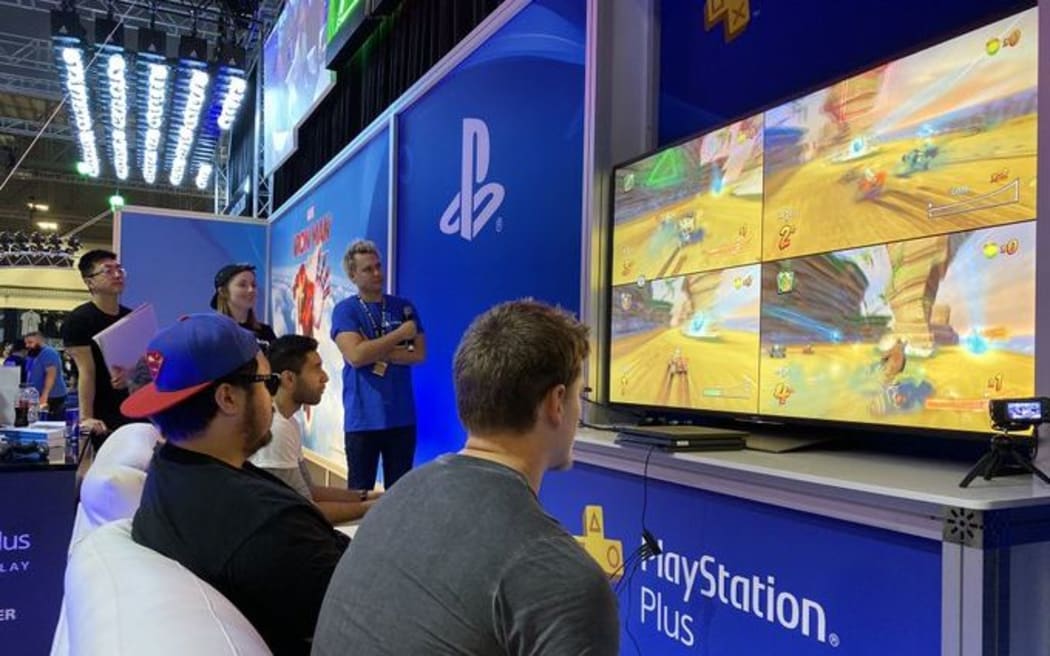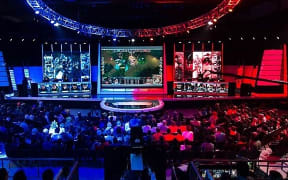With estimates of one million esports gamers in New Zealand already, Lets Play Live (LPL) continues to forge ahead with innovative new ways of capturing the awareness and acceptance of traditional sporting bodies.

Esports fans at the Armageddon expo in Auckland. Photo: Supplied / Lets Play Live
Kids in school know who the best gamer in school is, just like they do the best rugby, football or basketball player. That's the estimation of the bullish, passionate, and determined Duane Mutu, the man who's helped led the esports media company towards continual growth in an ever-evolving industry.
LPL has steadily grown its mainstream presence after partnering with the top sporting bodies like the Warriors and All Blacks, deliberate strategies that were aimed at growing awareness.
Mutu, co-founder and director of LPL, says addressing stereotypes about gaming were big reasons such partnerships became important.
"Early on, we identified that stereotype issue around gaming not being perceived as a legitimate sport, so that's why we've worked with the likes of the All Blacks and Warriors, parents will see that and think if it's okay for Sonny Bill Williams or Roger Tuivasa-Sheck, then it's okay for my kids", Mutu said.
The latest move aims to capture gamers playing on mobile, a logical move due to that portion of the market - 65 percent of active gamers in New Zealand already play on mobile devices.
According to Mutu, two further aspects favor the growth of the industry in New Zealand moving forward.
Firstly, eyeballs. Unlike a lot of traditional sports which are wrapped into long-term deals with Pay TV providers, competitive gaming already has huge audiences via streaming sites like Twitch, YouTube and Mixer.

LPL wants to target smartphone gamers. Photo: 123RF
Mutu estimates that just over a million gamers in New Zealand already identify as "esports athletes", predicting a growing competitive advantage as participation in traditional sport declines.
"When you think about viewership, the future is going to be in people wanting to watch this because it's easy to understand and access, whereas other sports have a declining market both in participation and audience," Mutu said.
At the very coalface of the gaming industry, Mutu's previous background in traditional sports showed him another key difference.
On the face of it, esports appears to offer less barriers to top flight competition. With kids in New Zealand slowly moving away from contact sports, esports has a position to capitalize and is using accessibility as a big selling point.
"Take the All Blacks for example, to get to that absolute top level there are so many barriers for athletes but the reality for esports in this country right now is that you can legitimately be the best in the world from your bedroom," Mutu said.
New Zealand still has a way to go in terms of developing esports as an industry, but there is no questioning that the right levers are being pulled to slowly bring it closer to that outcome.
* Michael Pulman is a freelance journalist based in Hamilton and covers rugby, cricket, social issues, and esports.






